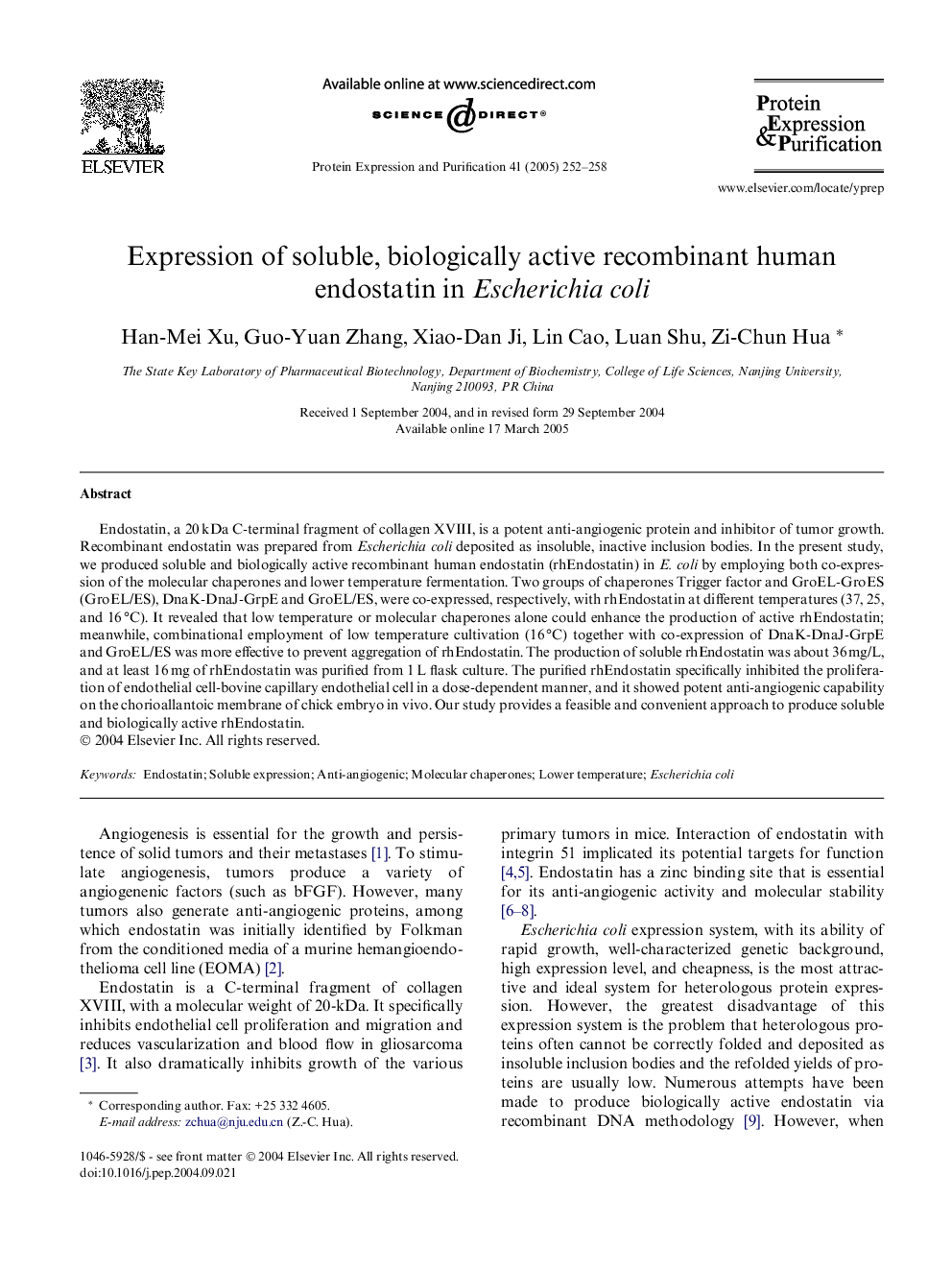| Article ID | Journal | Published Year | Pages | File Type |
|---|---|---|---|---|
| 10843742 | Protein Expression and Purification | 2005 | 7 Pages |
Abstract
Endostatin, a 20 kDa C-terminal fragment of collagen XVIII, is a potent anti-angiogenic protein and inhibitor of tumor growth. Recombinant endostatin was prepared from Escherichia coli deposited as insoluble, inactive inclusion bodies. In the present study, we produced soluble and biologically active recombinant human endostatin (rhEndostatin) in E. coli by employing both co-expression of the molecular chaperones and lower temperature fermentation. Two groups of chaperones Trigger factor and GroEL-GroES (GroEL/ES), DnaK-DnaJ-GrpE and GroEL/ES, were co-expressed, respectively, with rhEndostatin at different temperatures (37, 25, and 16 °C). It revealed that low temperature or molecular chaperones alone could enhance the production of active rhEndostatin; meanwhile, combinational employment of low temperature cultivation (16 °C) together with co-expression of DnaK-DnaJ-GrpE and GroEL/ES was more effective to prevent aggregation of rhEndostatin. The production of soluble rhEndostatin was about 36 mg/L, and at least 16 mg of rhEndostatin was purified from 1 L flask culture. The purified rhEndostatin specifically inhibited the proliferation of endothelial cell-bovine capillary endothelial cell in a dose-dependent manner, and it showed potent anti-angiogenic capability on the chorioallantoic membrane of chick embryo in vivo. Our study provides a feasible and convenient approach to produce soluble and biologically active rhEndostatin.
Keywords
Related Topics
Life Sciences
Biochemistry, Genetics and Molecular Biology
Biochemistry
Authors
Han-Mei Xu, Guo-Yuan Zhang, Xiao-Dan Ji, Lin Cao, Luan Shu, Zi-Chun Hua,
